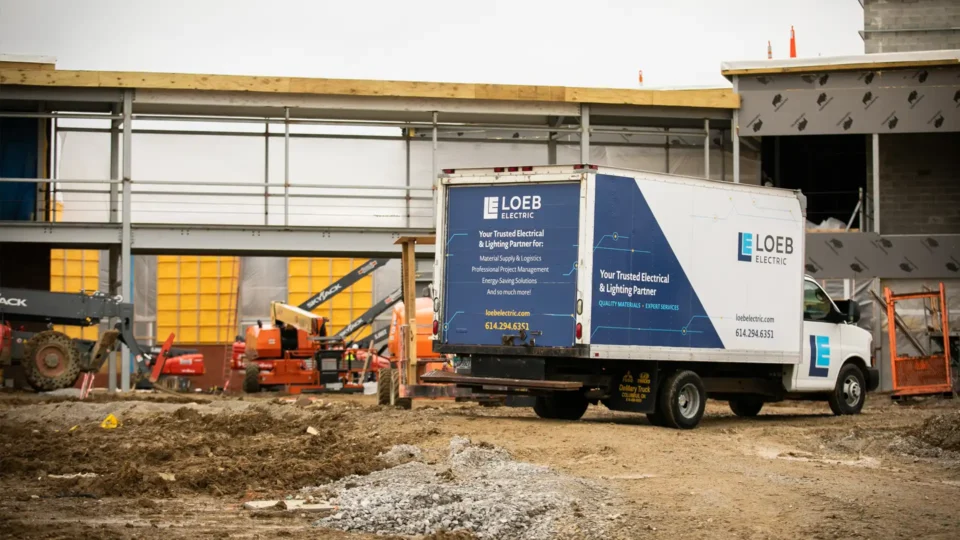Posted: May 7, 2024
By: Editorial Team
Electric vehicles (EVs) are steadily making their way onto more and more roads nationwide. As of 2023, the United States is the third-largest electric vehicle (EV) market, and EVs are projected to account for nearly 30% of new cars sold in the US by 2032.
Those drivers will need to charge their new cars, and they—and the businesses they frequent—are looking to electrical experts like you to play a crucial role in helping them do just that.
Over the next several years, hundreds of millions of dollars will be needed for infrastructure upgrades to support electric vehicle charging, and the EV charger station is just one part of it!
If you’re still unsure why an electrical contractor should bother with EV charging projects, read on:
1. Business Growth Opportunities
As part of the Bipartisan Infrastructure Law, the Department of Transportation announced the National Electric Vehicle Infrastructure (NEVI) program. This program allocates $5 billion to install 500,000 electric vehicle (EV) charging stations along U.S. highways by 2030. States are seeking qualified electricians to capture these funds and help build out America’s infrastructure.
It’s also worth keeping in mind that NEVI is only part of the nationwide effort to develop an EV infrastructure. Cities and municipalities are also beginning to embrace EV charging, and by 2030, it’s estimated that we’ll need 28 million public chargers to support all the EVs on the road. These projects will need experienced electrical contractors, so it’s in your best interest to add EV charging installation to your tool belt.
2. Your Customer’s Need EV Charging Guidance
From tax incentives to an additional revenue stream, there are multiple benefits for your customer to upgrade their facilities and their company’s fleet with EV chargers. But do your customers fully understand all the current and future benefits?
A customer may request a new parking lot but not mention EV charging stations, or they may only inquire about adding one charging station to a facility exceeding 100,000 square feet. You know they need to prepare their electrical infrastructure, but are you having exploratory conversations with your customers about these future needs?
If not, now is the time. By leveraging your construction experience and being open to learning the particulars of EV charging needs and benefits, you will become indispensable to customers looking to navigate EV charging opportunities now and in the future.
3. New Construction Code Geared Toward EV-Readiness
In January 2020, the International Code Council (ICC) approved building standard changes that effectively would make all new homes built in the US EV-ready. Under these changes, new single-family homes would need at least one panel capable of handling a full-sized EV charging overnight; multi-family buildings will need two, as well as additional retrofit-ready spots for future expansion.
While the ICC guidelines are voluntary, new projects are likely to opt for compliance with them. A 2016 study estimated the cost of new EV-ready installation per parking spot at $920, while a retrofit would incur $3,710. As more people opt for EVs, building to anticipate that power need is the smarter move.
When considering commercial properties, many cities’ building codes, including those in Columbus, Ohio, already require EV-readiness. More states and localities are bound to follow suit as EV adoption increases. From companies seeking to attract talent to stores that attract customers to shop while charging, building owners require the guidance of electrical contractors, not just in installation, but also in determining the best solution for their specific needs.
A refresher on EV-readiness levels
EV-ready parking is a best practice that ensures newly constructed parking spaces are equipped with, or can easily and affordably be converted to, EV charging stations. It requires that a certain percentage of newly constructed parking spaces include electrical infrastructure during the construction process.
- EV capable: provide dedicated conduit from the planned location of a breaker or subpanel expansion to the EV-capable parking spaces.
- EV ready: provide dedicated electrical panel capacity, conduit, and wiring installed with termination at an outlet to the EV-ready parking space.
- EV installed: provide dedicated panel capacity, conduit, and electric vehicle supply equipment (EVSE) installed.
4. You’re Already the Electrical Expert!
Installing EV charging stations and the infrastructure to support them requires knowledge of electrical systems, wiring, and safety regulations. Electrical contractors already possess this expertise, which makes them well-suited for EV charging projects.
Since states want to participate in the NEVI projects as quickly as possible, they’re especially seeking EV charging contractors with experience in parking lots, roads, and other hard infrastructure. According to industry writer Dormie Roberts of For Construction Pros, “new industry sectors aren’t being defined around EV infrastructure installation; instead, jobs are being enhanced by the addition of skills related to the construction of such infrastructure.”
Your EV-Charging Supplies Partner
EV charging is here to stay, and Loeb Electric can help you capitalize on the opportunities these projects present. From EV charging equipment to project management, Loeb has you covered. Contact us here or call 800.686.6351 to learn how we can help you prepare for your EV projects.
Speak with lighting & electrical distribution experts today.
Header photo courtesy of ChargePoint, Inc.
Related Posts:
Recent Posts
Acoustic Lighting Systems: Enhancing Sustainability, Efficiency, & Building Performance
November 17, 2025
Share via:
Read moreElectrical Value Engineering: 4 Ways Distributors Deliver Better Project Results
September 16, 2025
Share via:
Read more



